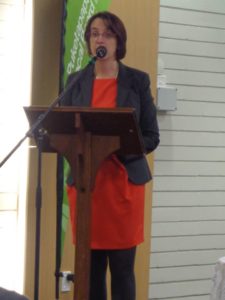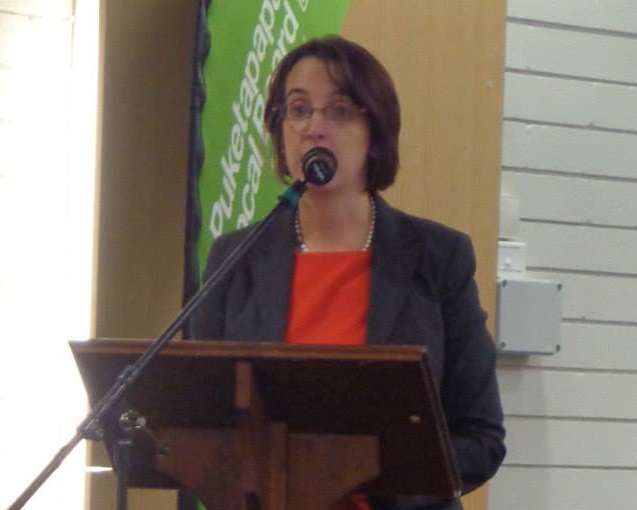 Imagine a park, an ordinary neighbourhood park. There are holes in the ground, it’s quiet, a bit overcast. Two people turn up with a ute and a trailer; carrying bark, spades, cold drinks, some sticks with bags on the end. Slowly neighbours start to come out of the surrounding houses and streets, congregating around the trailer. Instructions are relayed, spades handed out, and the sticks start to be matched up to holes. The park, the neighbourhood, starts to buzz with the hum of chat and good works done together.
Imagine a park, an ordinary neighbourhood park. There are holes in the ground, it’s quiet, a bit overcast. Two people turn up with a ute and a trailer; carrying bark, spades, cold drinks, some sticks with bags on the end. Slowly neighbours start to come out of the surrounding houses and streets, congregating around the trailer. Instructions are relayed, spades handed out, and the sticks start to be matched up to holes. The park, the neighbourhood, starts to buzz with the hum of chat and good works done together.
This is a fruit tree planting in Stranolar Reserve, undertaken by locals to make their park nicer, provide some free fruit, and bring them together.
Three children were working together to plant a tree and I went over to them and asked if I could take a photograph. They pleasantly agreed. I asked them how they had met, did they know each other from school? They had never met before. They lived in the same block, played in the same park, but they hadn’t met until half an hour earlier. Half an hour later they were playing together on the playground, making up games and having a great time.
This is the power of the work that Local Boards can do. We can connect people. We can give people a stake in their neighbourhood. We can improve our environment. We can grow free food!
And we can give people a real say in how all of that happens, too.
I could reel off a list of the physical facilities accessed by 60,000 residents but that would give only part of the picture; there’s local community development, economic development, input to regional and isthmus matters, the Unitary Plan, heritage matters, community funding and leases, and so much more. The Remuneration Authority recently estimated the typical local board member will need to put in 24 hours a week, and chairs close to full time. It’s not an insignficant role, the power and funding has great potential to make change for local communities, and to involve them directly in deciding what that change should be and how it should happen.
There is power in a Local Board. There is power in this Local Board; the power to speak up with our community to get our needs met, to build on our strength, to enable the people of our neighbourhoods to work together.
We must focus our efforts on making Auckland Council a facilitator, an enabler, not just a regulator. Sometimes those two roles are in conflict, and the Local Board can help residents, organisations and businesses to navigate their way through. We can advocate for change to processes and structures, lead by example in the areas we control directly, and assist individuals with specific cases that serve as illustrations of why change is needed.
There are some major issues that need to be addressed in our community and for a long time there has not been a natural civic institution to deal with them. Mt Roskill was swamped in the Auckland City structure, as evidenced by our single library, cracked footpaths and low levels of community funding.
30% of our citizens live in areas of high deprivation. Most of us have to travel outside the area to work or study. We need housing stock that means you can move within our community if your circumstances change, rather than having to move away.
The Puketapapa Local Board has the resources, the connections, status and the institutional longevity to work with our community to tackle these challenges. Redeveloping Three Kings, making our town centres vibrant hubs, securing Rail to Roskill, advocating to central government for a deal to Bury the Pylons. And so much more.
There will be challenges, there always are. But as elected representatives of the Mt Roskill community, the Puketapapa Local Board is uniquely placed to identify and progress the hard stuff.
Take the carparks outside. Three major landowners involved, and a messy layout that twists and winds and isn’t well maintained. Who is going to take on resolving that? We can and I hope that we will.
I was not a fan of the Super City idea but I am a zealous convert to the concept of Local Boards, in particular this one, the Puketapapa Local Board. I look forward to hearing more from you all, and others no doubt, about what the Local Board can work alongside our community to achieve, and how we should do it We will need your help and we’ll do a better job with you on board.
Let’s get started!

